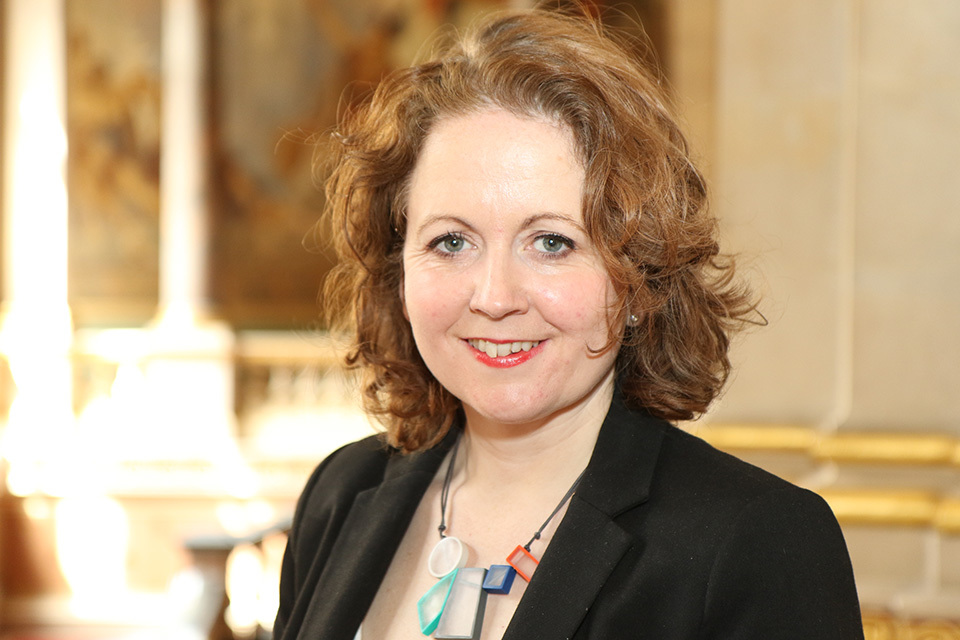Celebrating the 70th anniversary of the Commonwealth: speech by Melanie Hopkins
The British High Commissioner to Fiji spoke of the special strength of the Commonwealth that lies in the combination of diversity and shared inheritance.

Bula Vinaka. 2019 marks a significant milestone – the Commonwealth’s 70th anniversary. It’s great to see such a diverse group of people in the room tonight, from honourable parliamentarians, national representatives and colleagues from non-governmental organisations to young leaders, here to take part in this dialogue to prepare them for the challenge of shaping a better world for the next generation.
The Commonwealth began as a family of 8 states who signed the London Declaration in 1949. In the intervening years the Commonwealth has grown to 53 member states, which is more than a quarter of UN member states. 2.4 billion people live in Commonwealth countries, which is a third of the world’s population. The Commonwealth makes up one-fifth of global trade, with the combined GDP of Commonwealth nations set to reach US$13trillion in 2020. The potential is huge.
The ties that bind us in this region are deep-rooted and stretch back many years. A large number of countries in this region are members of the Commonwealth, including as Australia, Kiribati, Nauru, New Zealand, Papua New Guinea, Samoa, Solomon Islands, Tonga, Tuvalu, Vanuatu, and of course Fiji.
The special strength of the Commonwealth lies in the combination of diversity and shared inheritance in language, culture and the rule of law; bound together by the shared history and tradition; by respect for all states.
As the current Chair-in-Office, the United Kingdom is working with all member states to ensure the Commonwealth realise its potential. But what does it mean to be a Commonwealth member if you are from a Pacific country? The Commonwealth promotes shared values and inclusivity, helps harness talent, strengthens norms, amplifies the voices of small states, and helps tackle the big global challenges of the day such as extremism and climate change.
The UK wants to play an active role in this connected Commonwealth. At the Heads of Government meeting last year, the then Foreign Secretary, now our Prime Minister Boris Johnson, announced that the UK would be opening 9 new diplomatic missions in Commonwealth countries, thereby increasing the number of British High Commissions around the world from 38 to 47. Three of those new missions are in the Pacific: in Tonga, Vanuatu and Samoa, thereby doubling our diplomatic presence in the region. We have also doubled the number of diplomatic staff at the High Commission in Suva and welcomed a new regional development counselor.
As I noted at the start of this workshop, this evening event is part of the programme for the UK-funded Young Leaders Dialogue, which provides a platform where young people can acquire and share knowledge, engage in dialogue with respective national leaders, and foster networks for progressive development. It is funded through the Pacific Commonwealth Equality Project, which aims to increase the capacity of Pacific Island Countries to drive inclusive and equitable social change through good governance, respect for human rights, and fairer opportunities for politically, socially and economically marginalised communities. 60% of the population of the Commonwealth is aged under 30 so it is vital we engage with youth – they are the inspiration and driving force for the type of world we want for the next generation and beyond.
The Commonwealth and its members are also active in tackling what might be the defining issue of our time and that is the threat of climate change. As Commonwealth nations, we recognise that we live on a shared planet with finite, common resources that must be managed for the benefit of all. The Commonwealth Blue Charter is encouraging sustainable development and protection of the ocean, along with initiatives such as the Commonwealth Marine Economy Programme, and the Commonwealth Clean Oceans Alliance. The UK is proud to be at the heart of these initiatives and we look forward to COP25 in Chile and beyond that to COP26 in Glasgow, key opportunities for us to drive global ambition.